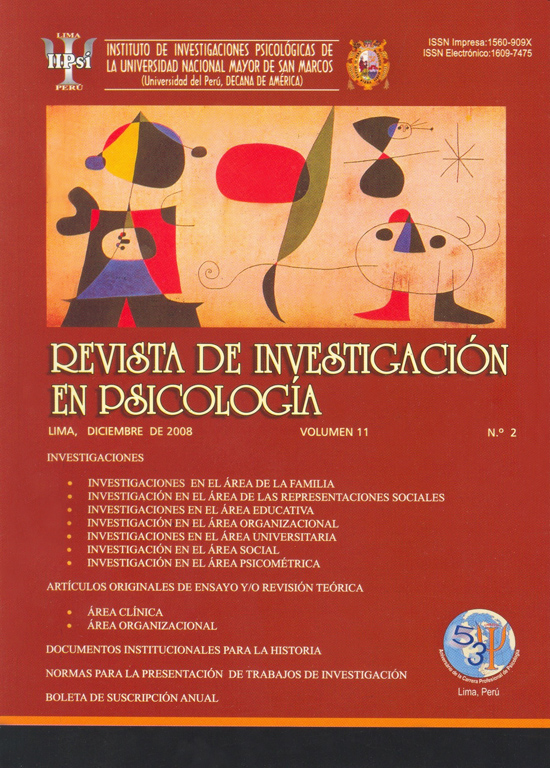Effects of a program to develop emotional intelligence in sixth grade of elementary education
DOI:
https://doi.org/10.15381/rinvp.v11i2.3819Keywords:
program emotional intelligence, primary educationAbstract
Objective: Effects of a program to develop the Emotional Intelligence in pupils of the sixth degree of primary education. Design: Experimental study with design cuasi experimental, realized in pupils of the sixth degree of primary education of the city of Lima in 2005. Material and methods: Applied Sampling was of the intentional one; the sample for the study was shaped by 80 students; 40 of state colleges and 40 of not state colleges, in every case 20 shaped the experimental group and 20 the group of control. There was in use the inventory of Baron ICE:NA’s Emotional Intelligence. A program was applied for increase of the emotional intelligence of the pupils in which the following activities developed: A) implementation of a program directed the pupils at which one was employed the skills and competitions that constitute the emotional intelligence. B) One organized a cycle of conferences for the teachers on the Emotional Intelligence and his (her, your) importance in the work with the pupils. C) Having in it (he, she) counts (tells) the importance of the active participation of the family parents, one organized a cycle of conferences on emotional Intelligence and the importance in the work with his (her, your) children. The statistical analysis developed in two stages, the descrip tive analysis of the studied variables and the analysis inferencial bi variado to confirm the raised hypotheses. Results: The average of the age of the evaluated pupils was of 11.1 ± 1.40 years, 59,9 % was women and 40,5 % was males. The contrasts of hypothesis indicated that they dressed differences in favour of the experimental group in the areas and the whole of the emotional intelligence, whereas they found statistical significant differences neither for the type of college nor for sex. Conclusions: The finds indicate that the program was efficient to increase the I. E. in pupils who took part in the experimental group. They did not appreciate significant statistics in the comparisons for the type of management of the college of origin and the sex of the pupils.Downloads
Published
Issue
Section
License
Copyright (c) 2008 Amparo Sotil B., Luis Escurra M., Rosa Huerta R., Marcelina Rosas C., Emma Campos P., Ana Llaños

This work is licensed under a Creative Commons Attribution-NonCommercial-ShareAlike 4.0 International License.
THE AUTHORS RETAIN THEIR RIGHTS:
a. The authors retain their trademark and patent rights, and also on any process or procedure described in the article.
b. The authors retain the right to share, copy, distribute, execute and publicly communicate the article published in the Journal of Research in Psychology (for example, place it in an institutional repository or publish it in a book), with acknowledgment of its initial publication in the Journal of Research in Psychology.
c. Authors retain the right to make a subsequent publication of their work, to use the article or any part of it (for example: a compilation of their work, lecture notes, thesis, or for a book), provided that they indicate the source. of publication (authors of the work, magazine, volume, number and date).























